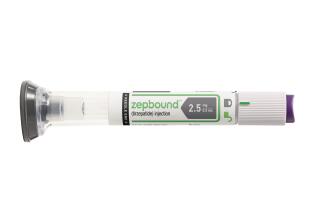Amgen to buy drug developer Micromet for $1.16 billion
Biotech giant Amgen, fresh off mixed earnings, said it will shell out $1.16 billion to broaden its product pipeline by buying fellow drug developer Micromet Inc.
Thousand Oaks-based Amgen is already one of the world’s premier pharmaceutical firms, but it’s saddled with mostly older products, such as anemia treatment Epogen and arthritis medication Enbrel.
Its portfolio is facing more competition and high expenses as similar products hit the market, analysts said.
Amgen’s profit in 2011 fell 20.4% year over year — largely because of higher costs — to about $3.7 billion, or $4.07 a share, the company said after the markets closed Thursday.
Revenue was up 3.5% to nearly $15.6 billion. Osteoporosis drugs Xgeva and Prolia saw 31% and 59% sales increases, respectively, pushing total product sales up 4%. But anemia drug Aranesp slipped 15% while Epogen tanked 18%.
For Amgen, much of Rockville, Md.-based Micromet’s appeal was in its Blinatumomab drug, currently being tested as a treatment for leukemia and non-Hodgkin’s lymphoma. The medication “will serve as an important complement to our oncology pipeline,” Amgen Chief Executive Kevin Sharer said in a statement.
Although the deal itself would be “small potatoes” given Amgen’s enormous size, said Cowen Group senior analyst Eric Schmidt, nabbing Blinatumomab would give the company a foothold in the growing oncology drug market.
“It’s a drug that seemingly works and treats cancers that have few if any alternative therapies,” Schmidt said. “While it won’t be a big product, it will still be a very real product for Amgen.”
Other analysts said that bringing Micromet into the fold probably would be the first of many more deals and acquisitions by Amgen. The company, which will be operating with a new chief executive after Sharer retires in May, has been working to diversify its business, according to a report from RBC Capital Markets.
Amgen has “historically been trigger-shy on deals as many of their prior acquisitions have disappointed,” the report said.
The Micromet buy, which still has to get shareholder and regulatory approval, would be Amgen’s largest in the last five years — the closest was its $425-million purchase of biotech firm BioVex Group Inc. in 2011. Amgen’s largest payout ever was $2.2 billion to buy biopharmaceutical company Abgenix Inc. in 2005.
Amgen also would take over Micromet’s research and development center in Munich, Germany.
At $11 a share, the price represents a 33% premium over Micromet’s closing price Wednesday. Amgen plans for a subsidiary to first buy a majority of Micromet’s stock before the parent company, which recently authorized a $10-billion buy-back program for its own stock, picks up the rest.
Analysts from Leerink Swann said Micromet’s price tag was a bit high, but they were generally pleased with the purchase, adding that Blinatumomab holds “long-term value.” The deal, already approved by both companies’ boards, is expected to close in the first quarter.
Amgen stock, which has been on an upswing since the holidays, closed down 1.6%, or $1.13, to $68.08 on Thursday on the acquisition and earnings news. Micromet stock, which had a volatile year but this month has reached record highs, soared 32%, or $2.66, to $10.94.
Amgen is emerging from several years of controversy, including accusations in 2009 that the company was offering kickbacks to medical providers to boost sales of Aranesp. The drug had earlier been slapped with a “black box warning” from the Food and Drug Administration about dangerous side effects.
But Cowen Group’s Schmidt said investors are now changing their views of the company, which doesn’t have to worry about expiring drug patents and has recently begun offering dividends to investors.
Even Amgen’s announcement last year that it would lay off hundreds of employees got kudos from analysts, who saw the cost-cutting as a “welcome sign of managerial discipline.”
“The perception on Wall Street is that many of these larger pharmaceutical companies have gotten too fat and too lazy,” Schmidt said. “Amgen has emerged looking stable, clean and very healthy.”







